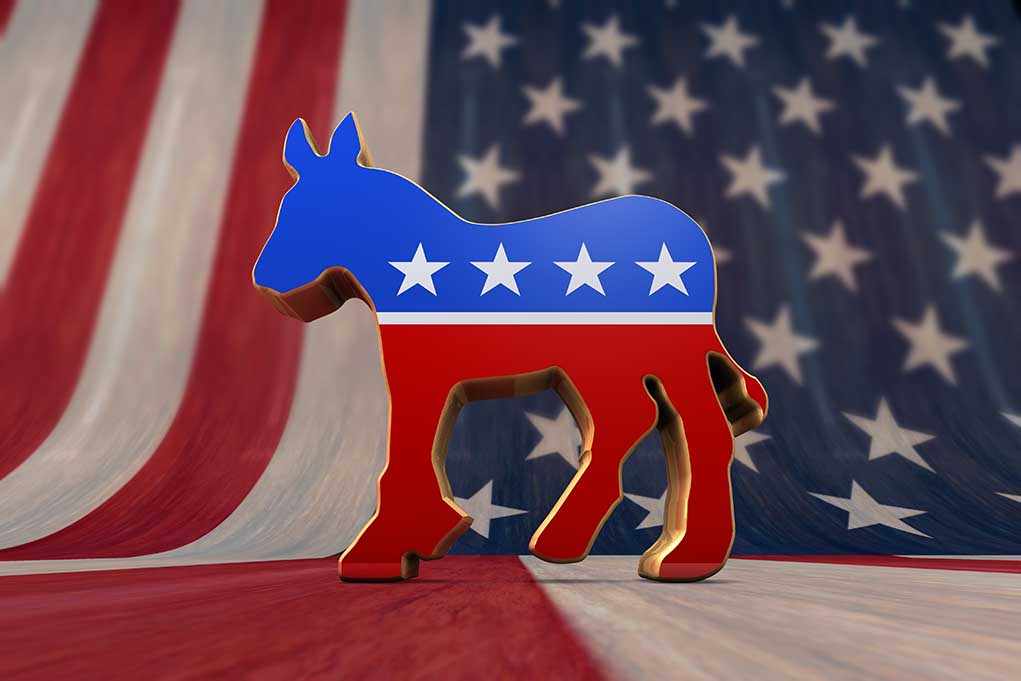
Democrats now favor socialism over capitalism, marking a historic reversal that intensifies partisan divides and raises alarms about the direction of American economic values.
Story Snapshot
- Gallup’s August 2025 poll shows only Democrats now view socialism more positively than capitalism.
- Republicans and independents continue to support capitalism, deepening ideological polarization.
- This shift reflects generational changes and the rising influence of progressive leaders within the Democratic Party.
- Experts warn the trend may fuel further division and reshape future policy debates.
Democrats’ Historic Shift Toward Socialism
For the first time in Gallup polling history, Democrats hold a more favorable view of socialism than capitalism. The August 2025 survey reveals that just 42% of Democrats view capitalism positively, while 66% express positive opinions of socialism. This sharp divergence is unprecedented and stands in contrast to Republicans, who overwhelmingly back capitalism, and independents, who still favor capitalism but with less enthusiasm. The data signals a profound partisan realignment in attitudes toward foundational economic systems.
Republican support for capitalism remains strong at 74%, while only 14% of Republicans have positive views of socialism. Independents are split, with 51% viewing capitalism favorably versus 38% for socialism. The shift among Democrats began after the 2008 financial crisis and accelerated with the rise of progressive figures like Bernie Sanders and Alexandria Ocasio-Cortez. These leaders champion policies such as Medicare for All and student debt relief, further pushing the party toward socialist-leaning positions. The divergence is especially notable as younger generations, including Millennials and Gen Z, increasingly question the effectiveness of capitalism.
Key Stakeholders and Party Dynamics
The progressive wing of the Democratic Party has gained significant influence, driving the move toward socialist policies. This internal dynamic has led to tensions between moderates and progressives, with debates over the party’s economic identity now front and center. Republicans, meanwhile, leverage Democrats’ embrace of socialism as a campaign issue, framing it as an attack on traditional American values like individual liberty and free markets. Polling organizations such as Gallup and Pew Research Center continue to monitor these trends and provide critical data to inform public debate and policymaking.
Party leaders, elected officials, and influential media figures shape how these issues are presented to the public. Think tanks and advocacy groups on both sides of the debate—such as the American Enterprise Institute and Democratic Socialists of America—play a role in shaping policy proposals and public perceptions. The partisan divide is at a historic high, with Democrats internally divided and Republicans united in opposition to socialism.
Implications for Economic Policy and Political Discourse
The short-term impact of this shift is heightened polarization in economic policy debates. Democrats may pursue more progressive proposals, while Republicans use the divide to galvanize their base. Long-term implications include potential realignment of party platforms and generational changes in economic attitudes, which could reshape the future of U.S. politics. Economic, social, and political impacts may include deeper social divisions, more ideologically charged debates over taxation and regulation, and increased emphasis on capitalism versus socialism in campaign rhetoric.
Democrats Now Like Socialism Much More Than Capitalism, New Poll Shows https://t.co/Dv7fisiimo
— JaneDoe (@JaneOpines) September 8, 2025
Business groups are likely to respond to rising skepticism of capitalism with public relations efforts, while labor unions and advocacy organizations push for more redistributive policies. The debate is not merely academic—policy outcomes could affect everything from healthcare and education to job growth and innovation. Experts caution that increased polarization may hinder bipartisan cooperation and slow meaningful reform. Scholars note that many Democrats’ positive views of socialism refer to European-style social democracy rather than state-controlled economies, but the label itself remains divisive.
Expert Perspectives and Source Validation
Gallup analysts highlight the historic nature of the divide and its implications for political discourse. Political scientists attribute the shift to generational change, economic insecurity, and the influence of progressive leaders. Economists warn that growing polarization may stall bipartisan economic policymaking, making it harder to address pressing issues like inflation and fiscal management. While some experts see the shift as a sign of healthy debate over alternatives, others caution that rising anti-capitalist sentiment could undermine economic growth and innovation.
All key claims are supported by recent, methodologically sound public opinion research. No major contradictions exist in the polling data; trends are consistent across reputable sources. The future impact remains uncertain, especially regarding how these attitudes will translate into policy or electoral outcomes, but the consequences for American conservatism and constitutional values will be closely watched.
Sources:
Gallup News, “Image of Capitalism Slips to 54% in U.S.” (Aug 2025)
KTVU, “Americans’ support for capitalism drops to new low, poll finds” (Aug 2025)
Pew Research Center, “Favorable views of Supreme Court remain near historic low” (Sep 2025)
Gallup News, “Democrats Regain Advantage in Party Affiliation” (2025)
AP-NORC, “Democrats are deeply pessimistic about the future of their party” (2025)












